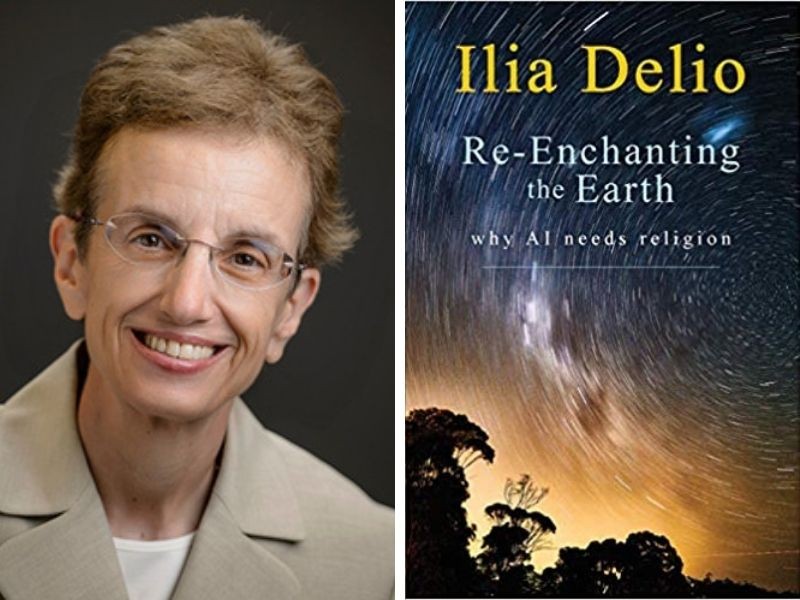"Re-Enchanting the Earth: Why AI needs Religion" Considers Theology, Technology, and What They Reveal About Us as Humans in Villanova Professor’s New Book

VILLANOVA, Pa.— As humanity continues to brave new worlds—most of them virtual—the need for theology becomes all the more important. Re-Enchanting the Earth: Why AI needs Religion (Orbis Publishing, 2020), by Ilia Delio, OSF, PhD, professor of Systematic and Constructive Theology and the Connelly Chair in Christian Theology in Villanova University’s College of Liberal Arts and Sciences, raises pressing questions about technology’s ability to serve as an extension of ourselves and what that means in relation to religion and philosophy.
The book discusses the philosophical future of technological evolution, specifically Artificial Intelligence. Sister Delio explains that her book is built upon the belief that AI works as a mirror in which we can see not only ourselves, but also the worlds we are creating and what we are becoming. Technology gives us the ability to reach the same “depths of human personhood” where religion has consistently resided.
“Ilia Delio does what has been long overdue. She has harnessed the most potent progressive religious vision of the recent past—that of Teilhard de Chardin—to the emerging secular trends of trans- and post-humanism, which equally promise to radically transform our sense of being in the world,” said reviewer Steve Fuller, PhD, Auguste Comte Chair in Social Epistemology, University of Warwick, and the author of Humanity 2.0. “The result is a provocative call to arms for a generation that already embraces science and technology but wants to go beyond conventional religion in search of spiritual inspiration and direction.”
Sister Delio’s research focuses on historical and systematic theology, science and religion and constructive theology. She has authored 17 books including Care for Creation and The Emergent Christ, which have both won the Catholic Press Book Award, as well as Making All Things New: Catholicity, Cosmology and Consciousness, which was nominated for the 2018 Grawemeyer Award. She has earned two doctorate degrees, one in pharmacology from Rutgers University the other in historical theology from Fordham University.
About Villanova University’s College of Liberal Arts and Sciences: Since its founding in 1842, Villanova University’s College of Liberal Arts and Sciences has cultivated knowledge, understanding and intellectual courage for a purposeful life in a challenging and changing world. With more than 40 majors across the humanities, social sciences and natural sciences, it is the oldest and largest of Villanova’s colleges, serving more than 4,500 undergraduate and graduate students each year. The College is committed to a teacher-scholar model, offering outstanding undergraduate and graduate research opportunities and a rigorous core curriculum that prepares students to become critical thinkers, strong communicators, and ethical leaders with a truly global perspective.
